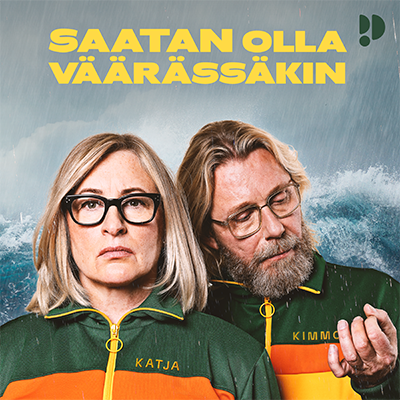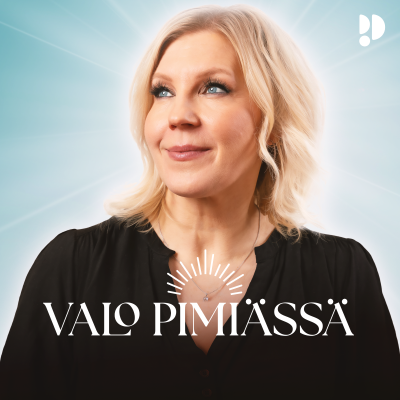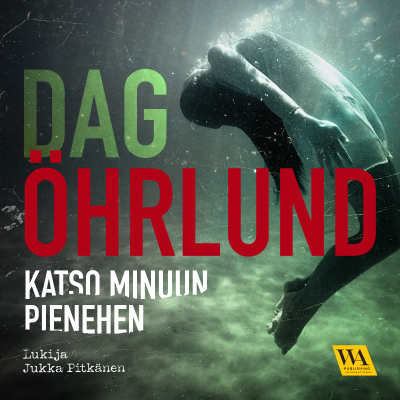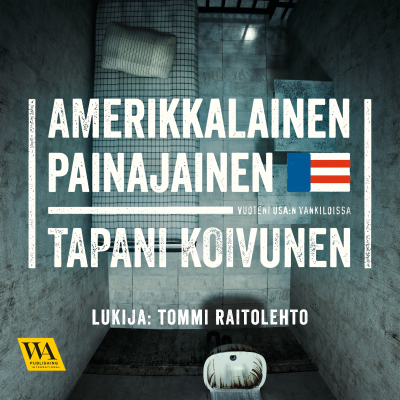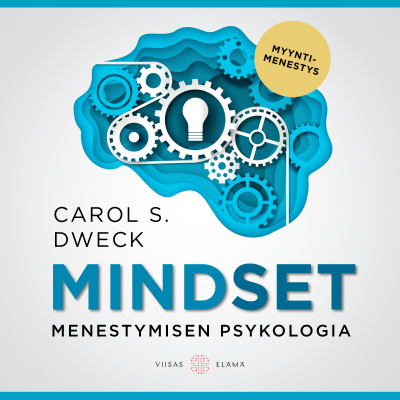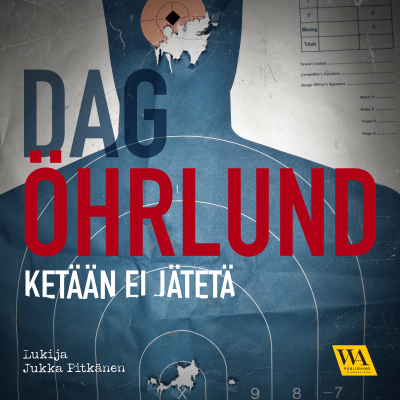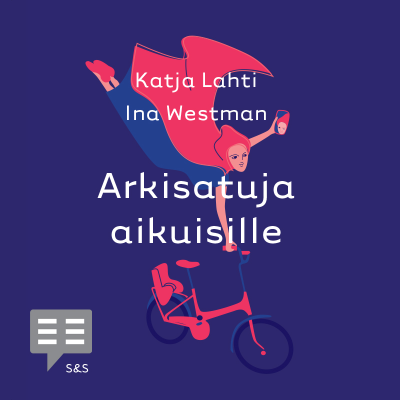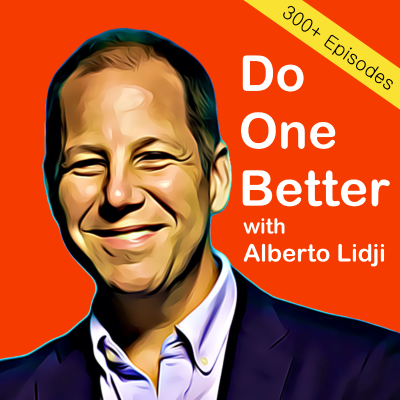
Do One Better with Alberto Lidji in Philanthropy, Sustainability and Social Entrepreneurship
Podcast by Alberto Lidji
90 vrk ilmainen kokeilu
Kokeilun jälkeen 7,99 € / kuukausi.Peru milloin tahansa.

Enemmän kuin miljoona kuuntelijaa
Tulet rakastamaan Podimoa, etkä ole ainoa
Arvioitu 4.7 App Storessa
Lisää Do One Better with Alberto Lidji in Philanthropy, Sustainability and Social Entrepreneurship
Listen to 300+ interviews on philanthropy, sustainability and social entrepreneurship. Guests include Paul Polman, David Lynch, Siya Kolisi, Cherie Blair, Chiwetel Ejiofor, Bob Moritz, David Miliband and Julia Gillard. Hosted by Alberto Lidji, Visiting Professor at Strathclyde Business School and ex-Global CEO of the Novak Djokovic Foundation. Visit Lidji.org for more information.
Kaikki jaksot
333 jaksotIn this compelling conversation, Inger Ashing, CEO of Save the Children International, offers an unflinching examination of the state of children's rights in a world increasingly defined by conflict, climate disruption, and political fragmentation. She reflects on the historic roots of Save the Children, founded in the aftermath of World War I with a radical vision that children, regardless of nationality or political context, are entitled to rights, dignity, and protection. This foundational principle, she explains, remains strikingly relevant today. Ashing underscores the organization's expansive reach—operating in approximately 100 countries and having supported over 110 million children in 2024 alone. But alongside the impressive scale of operations, she offers a sobering account of the challenges children face. One in six children globally now lives in conflict zones. The number of children out of school—85 million—is at its highest level ever recorded. She discusses the reversal of hard-won gains in child health, protection, and education, driven by a perfect storm of climate emergencies, armed conflicts, and a backlash against international norms, including child and women's rights. At the heart of Ashing’s message is the belief in children’s agency. Through deeply personal anecdotes drawn from her field visits—from a 14-year-old girl raising her siblings in northern Mozambique to a boy in Pakistan rebuilding his life after catastrophic floods—she illustrates the extraordinary resilience and vision that young people bring to the most adverse circumstances. Their desire for education is not abstract; it is a lifeline, a claim to future possibility. And it is in emergencies where education is most threatened—and most needed—that Save the Children concentrates much of its current work. Ashing emphasizes that education in emergencies is not a peripheral concern but a life-saving intervention. With donor priorities shifting and official development assistance shrinking, this work is at risk. Yet, Save the Children’s evidence-based approaches—refined over decades and adapted across diverse contexts—demonstrate what can be achieved when commitment and local engagement meet strategic investment. These “common approaches,” as she describes them, are publicly available and designed to maximize learning across the broader humanitarian sector. In addition to its humanitarian interventions, the organization is also engaged in long-term systems change—advising ministries, shaping policy, and addressing root causes of issues such as child marriage, which affects 12 million girls annually. Ashing reiterates that addressing child protection holistically requires legislative reform, social norm change, and, critically, economic empowerment—especially through keeping girls in school. Ashing calls on world leaders to re-center children in global priorities and urges those working in the sector to do so in genuine partnership with youth. Nothing, she insists, should be done about children without them. In the face of daunting statistics and policy setbacks, she points to a truth that holds steady: we know what works. Thank you for downloading this episode of the Do One Better Podcast. Visit our Knowledge Hub at Lidji.org [https://www.lidji.org/] for information on 300 case studies and interviews with remarkable leaders in philanthropy, sustainability and social entrepreneurship.
Emma Haddad, Chief Executive of St Mungo’s, provides a clear and thoughtful examination of homelessness in England and the work being done to respond to it. St Mungo’s, established in 1969, supports around 25,000 people each year through outreach, housing, and recovery services. Haddad explains that homelessness is not simply about lacking shelter, but often about a deeper set of issues that require long-term solutions. The organization’s mission reflects this broader understanding, aiming not just to house people, but to help them rebuild their lives. She clarifies the distinction between rough sleeping and other forms of homelessness. Rough sleeping refers to people sleeping on the streets, while many more live in temporary arrangements such as cars, hostels, or friends’ homes. Although rough sleeping is more visible, it represents only part of the wider issue. According to Haddad, rough sleeping in England has increased significantly in recent years, driven by a shortage of affordable housing, reduced access to support services, and a fragmented policy landscape. Most of St Mungo’s staff work directly with clients. Outreach teams operate at night or in the early morning, locating and engaging with individuals sleeping rough. These teams aim to build trust, assess needs, and help people move off the streets and into more stable environments. The process is often slow and dependent on available accommodation, individual readiness to engage, and local capacity. When space allows, people may be taken to assessment centers where more structured support begins. The conversation also highlights the role of public services and partnerships. St Mungo’s collaborates closely with mental health providers, addiction services, the NHS, local councils, and other charities. Haddad emphasizes that homelessness cannot be solved by any one organization. Rather, it requires cooperation across many sectors, each contributing their expertise. The episode also touches on the limits of the current system. One example is the requirement that someone must be seen sleeping rough in order to qualify for certain services, a policy that particularly disadvantages women and others who avoid visible street sleeping for safety reasons. Haddad describes this as a clear gap that needs to be addressed. From a policy perspective, St Mungo’s uses its frontline experience to advocate for changes at a national level. Haddad points to specific challenges such as the way housing benefits interact with employment, often discouraging people from working more hours due to a sudden drop in support. She also notes the need to adjust housing benefit levels so they reflect actual rental costs, and to prevent people from being discharged into homelessness from prisons, hospitals, or the immigration system. The discussion concludes with a focus on outcomes. While some clients do return to homelessness after a period of stability, many others succeed in moving on and rebuilding their lives. Some even return to St Mungo’s as staff or volunteers. Haddad notes that this kind of personal transformation often stems from small but meaningful interventions at critical moments. She encourages the public not to look away from homelessness, and reminds listeners that treating people with dignity and recognizing their humanity is a simple but important step. Homelessness, she argues, is not inevitable. It is the result of choices that can be changed. Everyone deserves a safe place to live, and solutions are within reach. Thank you for downloading this episode of the Do One Better Podcast. Visit our Knowledge Hub at Lidji.org [https://www.lidji.org/] for information on 300 case studies and interviews with remarkable leaders in philanthropy, sustainability and social entrepreneurship.
Alison Covington AM, Founder and Managing Director of Good360 Australia, shares the powerful story of how her organization is “matching spare with need”—connecting businesses with surplus brand-new goods to charities and disadvantaged schools across the country. Through a sophisticated tech platform and logistics model, Good360 creates what Covington calls “a circle of good,” ensuring that valuable products such as clothing, toiletries, household items, and furniture reach those who need them most, rather than sitting idle or being destroyed. This isn’t about food waste—an area that has gained considerable public awareness—but about all the other categories of goods essential to daily life and human dignity. Most consumers don’t realize the extent to which businesses, even after offering steep discounts, are left with enormous quantities of unsold products. At the same time, community organizations face constant shortages. Good360 bridges this gap by allowing thousands of registered nonprofits to search online 24/7 for the goods they need, in the quantities they require, with options for delivery, click-and-collect, or in-store pickup. Covington explains that while the user experience feels seamless, the technology behind the platform is extensive and custom-built, designed to manage the enormous logistical complexity of moving goods across Australia’s vast geography while minimizing environmental impact. Matching goods as close as possible to where they’re needed helps reduce unnecessary “environmental kilometres” and maximizes the efficiency of each donation. One standout example is Good360’s long-standing partnership with Big W, a national retailer with over 180 stores. By building a store-based model that connects local charities directly with local inventory, Good360 has enabled more than 700 charities to access high-quality goods. For Big W, this means a single point of contact replaces hundreds of individual charitable relationships, delivering scale, compliance, and measurable social impact. For communities, it means vital resources—and dignity—reach the people who need them, where they are. Thank you for downloading this episode of the Do One Better Podcast. Visit our Knowledge Hub at Lidji.org [https://www.lidji.org/] for information on 300 case studies and interviews with remarkable leaders in philanthropy, sustainability and social entrepreneurship.
Naina Batra, CEO of AVPN, offers a forward-looking and strategic view into the evolution of social investment across Asia. With the upcoming launch of ImpactCollab, AVPN is not merely introducing a platform — it is catalyzing an infrastructure for cross-border philanthropy and capital deployment across Asia’s fragmented social impact landscape. AVPN is a social investment network based in Asia and a leading ecosystem-builder that aims to move capital towards impact. ImpactCollab is a platform that has been designed with the support of the Monetary Authority of Singapore and the Bill & Melinda Gates Foundation. It has been designed to address long-standing inefficiencies and trust deficits that hamper giving in the region. It targets a critical and under-leveraged segment: the region’s burgeoning population of centi-millionaires and high-net-worth individuals who are eager to give back but often lack the guidance, transparency, and assurance necessary to do so confidently. By functioning simultaneously as a knowledge base, a due diligence engine, and a matchmaking platform, ImpactCollab seeks to bridge the trust gap and remove systemic friction from philanthropic flows. Batra notes this is Asia’s moment to lead. Faced with mounting social inequities, climate disasters, and reversals in gender parity and nutrition, the region demands urgent, coordinated responses. AVPN’s expansion underscores its commitment to mobilizing a pan-Asian community of social investors — from grantmakers and family offices to development finance institutions and policymakers. An interesting feature of ImpactCollab lies in its governance maturity framework and data-driven nonprofit scorecard. These tools serve dual purposes: instilling confidence in funders while streamlining reporting burdens for nonprofits, many of whom face opaque and restrictive foreign funding environments. AVPN’s approach — aggregating capital, reducing duplicative reporting, and embedding transparency — is aimed at producing systemic change. Batra's conviction is clear: wealth in Asia is abundant; what is lacking is a trusted, efficient conduit to mobilize that wealth toward lasting impact. ImpactCollab is AVPN’s bold answer to that challenge. Thank you for downloading this episode of the Do One Better Podcast. Visit our Knowledge Hub at Lidji.org [https://www.lidji.org/] for information on 300 case studies and interviews with remarkable leaders in philanthropy, sustainability and social entrepreneurship.
Mark Fawcett, Chief Executive Officer of Nest Invest, explores how the UK’s pension system has been transformed to serve a broader and more economically diverse workforce. Nest is the largest multi-employer pension fund in the UK, and it handles the retirement savings for nearly one-third of the UK working population. Nest Invest is the asset manager of Nest. Fawcett offers a compelling narrative about scale, access, and purpose-driven financial management. Nest’s core mission revolves around building financial resilience for all—an ambitious approach to investing that transcends the narrow goals of simple wealth accumulation. Fawcett discusses the profound impact of automatic enrollment, which dramatically expanded pension participation from just 10–15% of the UK workforce prior to its introduction to over 80% today. This shift has redefined the retirement outlook for millions, particularly low- to moderate-income earners, many of whom face significant income volatility and limited financial literacy. Fawcett emphasizes the behavioral finance insights that underpin Nest’s strategy. By minimizing the cognitive burden of financial decision-making, Nest has made pension saving feel less like an anxiety-laden obligation and more like a manageable, automated part of life. A large majority of members remain in these default options, insulated from daily market turbulence, thanks to highly diversified investments across public and private markets. Importantly, Fawcett also touches on the risks of both under-saving and over-saving. While many need encouragement to set aside more for the future, especially in the absence of emergency savings, others—particularly those closer to the poverty line—might unintentionally sacrifice present well-being for an uncertain future. Through sidecar savings initiatives and employer collaborations, Nest is investigating ways to improve short-term financial stability without undermining long-term retirement planning. A significant part of the conversation also centers on Nest’s role in sustainable investing. The organization has embedded ESG principles directly into its default investment strategies—not as niche options, but as a core part of its offering. From renewable energy and infrastructure to affordable housing and UK enterprise investment, Nest Invest is demonstrating that doing well financially need not come at the cost of doing good. The returns, as Fawcett notes, have been competitive, underscoring the false dichotomy between performance and purpose. This episode offers not only a powerful vision of inclusive finance but also actionable insights for policymakers, investors, and employers seeking to build systems that foster dignity, stability, and opportunity for all. Thank you for downloading this episode of the Do One Better Podcast. Visit our Knowledge Hub at Lidji.org [https://www.lidji.org/] for information on 300 case studies and interviews with remarkable leaders in philanthropy, sustainability and social entrepreneurship.

Arvioitu 4.7 App Storessa
90 vrk ilmainen kokeilu
Kokeilun jälkeen 7,99 € / kuukausi.Peru milloin tahansa.
Podimon podcastit
Mainoksista vapaa
Maksuttomat podcastit




